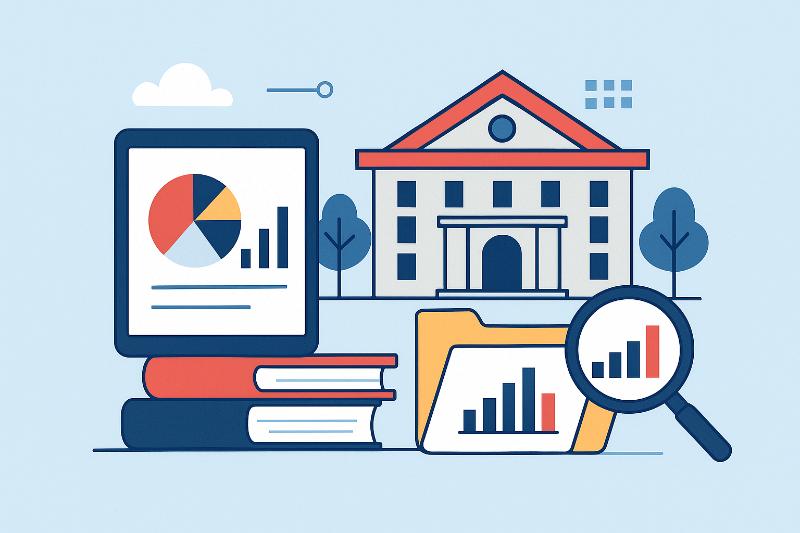Data and Academia: How to Advance Research with Open Data

Every day, universities and educational institutions generate and manage vast amounts of information: research, theses, technical reports, and administrative data. All this knowledge, with high potential for impact, often remains isolated and underutilized.
At Datasketch, we believe this situation should not be seen solely as a problem, but rather as a great opportunity to transform how universities and research centers produce, share, and apply knowledge. That’s why we want to explain why data is a hidden treasure in academia.
Open data to boost Impact
Today, rigorous research is being conducted that involves complex data collection processes, yet it often ends up encapsulated in documents —papers, theses, or technical reports— without open formats or public access. This limits its reuse for new studies, public policy, or community initiatives.
Unlocking these datasets would allow areas such as health, environment, housing, or economics to directly inform local governments, NGOs, and communities. Releasing information would also help avoid duplication of efforts on already completed studies, opening the door to new analyses and research on the same topics.
Integrating systems in academia
Many universities invest significant resources in academic and research management software, but these systems are often poorly interoperable: they don’t allow data to be exported in open formats or even integrated with other internal platforms. This leads to fragmentation of institutional information —such as enrollment, curricula, faculty performance, payroll, or dropout rates— making it harder to make informed decisions.
Overcoming this fragmentation through common data structures would enable information integration, resource optimization, and stronger collaboration among institutions. Interoperability thus becomes a strategic opportunity to strengthen academic management and increase the value of every piece of data generated.
A new data culture
Traditionally, academia has placed greater emphasis on the “final product” of research —whether an article, a thesis, or a book—. However, the process of generating and documenting data rarely receives the same attention when it comes to publication, even though it has enormous potential for impact.
When these processes remain invisible, opportunities for reuse are reduced, and the circulation of knowledge is hindered. On the other hand, fostering a culture that values data documentation, standardization, and publication can fuel open repositories and support institutional and national policies that ensure accessible formats.
At the same time, inequality persists in access to analytical tools: while some universities have advanced software and trained staff, others lack the resources to fully exploit the potential of their data. Promoting accessible tools and training would help close these gaps and democratize the use of data in higher education.
At Datasketch, we have been collaborating with organizations for years, co-developing projects, and creating solutions through data and technology. If you are part of an academic institution and want to start leveraging data to increase your impact, we invite you to join our campaign for 100 allies. Together, we can make technology and data key drivers of social transformation.